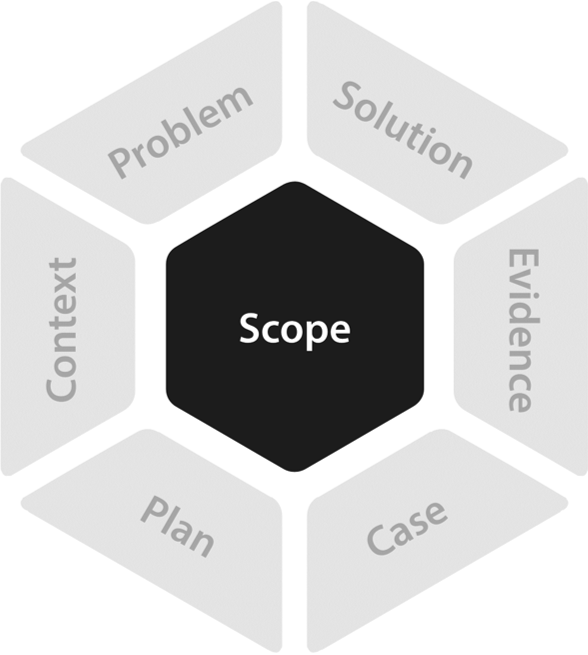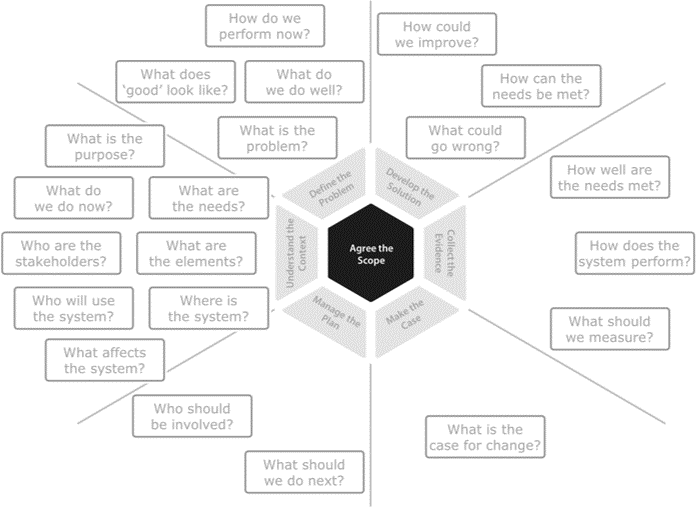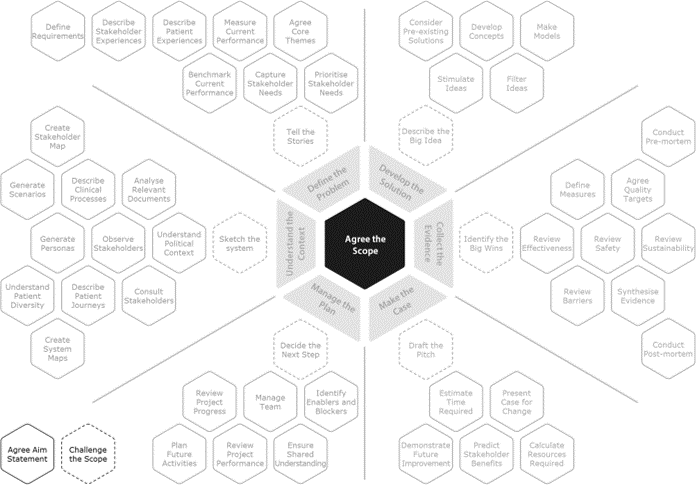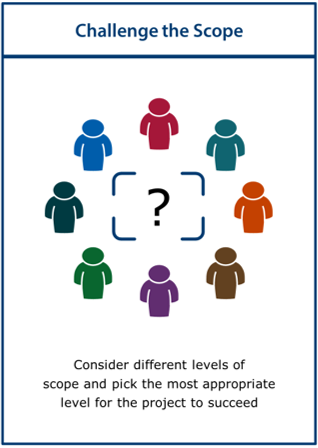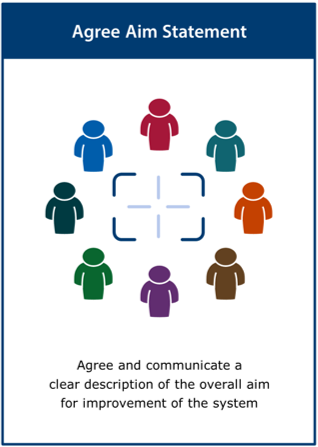The scope describes the context of the improvement envisaged in terms of the extent of the ambition for improvement and the boundary of the system of interest.
Contents
Introduction
The need to Agree the Scope is the last of the seven strands in the improvement model. It underlines the importance of reflecting on all that has been learned from the previous six elements, namely: understanding the system, defining the problem and developing the solution, collecting the evidence, making the case and managing the plan. The result should be an agree statement of the scope of the improvement programme which may be refined, as appropriate, as the process develops.
Purpose
Agreeing the Scope has vital importance to systems improvement: exploring the context of the challenge and possible solutions; establishing a clear case for change and plan for delivery; and developing a clear statement of the intended scope of the improvement to the system.
Activities
The process of collecting the evidence may include a wide range of activities including, but not limited to: Agree Aim Statement.
In the Initiate and Understand stages of the improvement process, a preliminary activity, Challenge the Scope, provides a useful starting point. It may also be relevant for the Co-design, Delivery and Sustain stages, where the context should be reviewed and updated to support the changing priorities of the latter stages of the improvement process.
More detail on each of these activities is given in the agree the scope part of the Activities section (within Resources)
Tools
The practice of agreeing the scope may draw on a wide range of tools including all those that may be used to address the other six elements of the improvement process, but is likely to be focused on discussions by the improvement team.
Use the Questions Map poster to identify the key questions that would help to deliver the outputs required.
Alternatively, use the Stage Activities poster to identify the improvement activities that would help deliver the outputs required.
Activities
Feedback
We would welcome your feedback on this page:
Privacy policy. If your feedback comments warrant follow-up communication, we will send you an email using the details you have provided. Feedback comments are anonymized and then stored on our file server
Read more about how we use your personal data. Any e-mails that are sent or received are stored on our mail server for up to 24 months.


